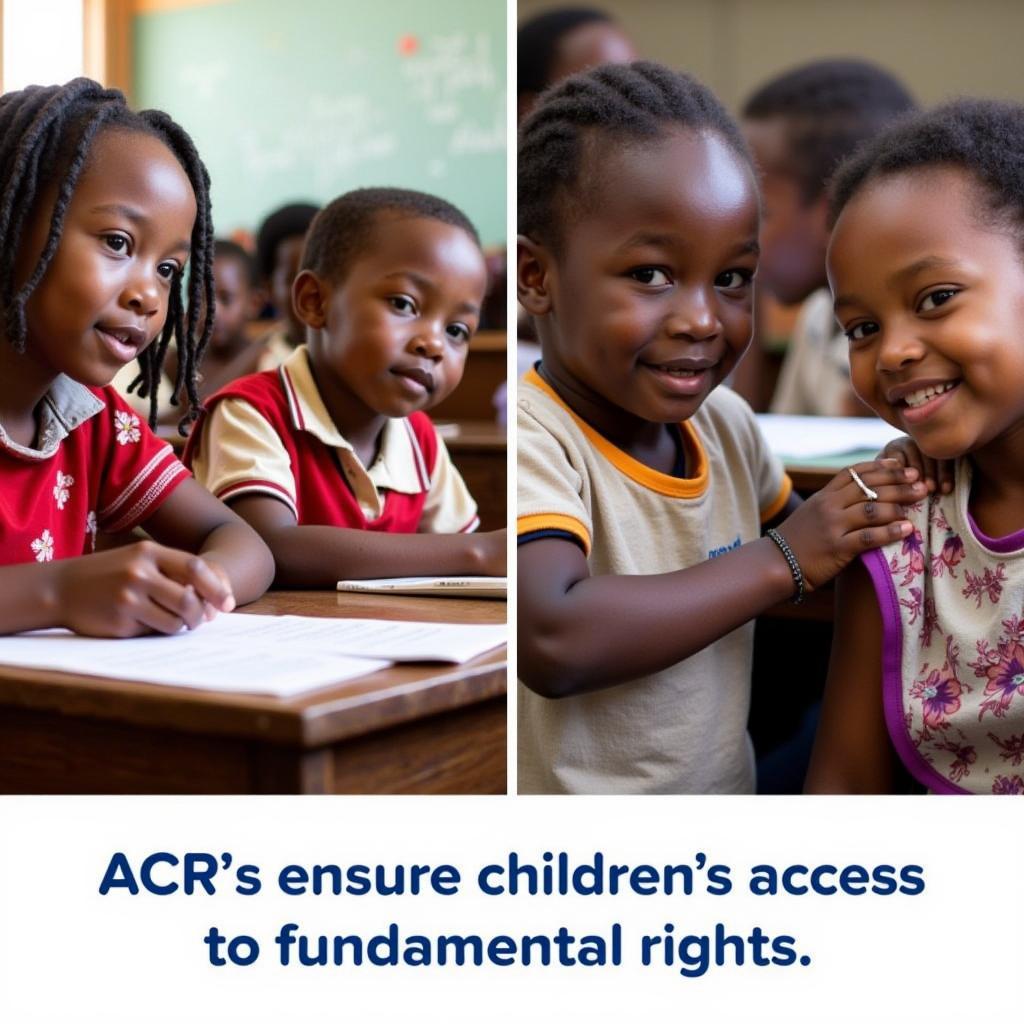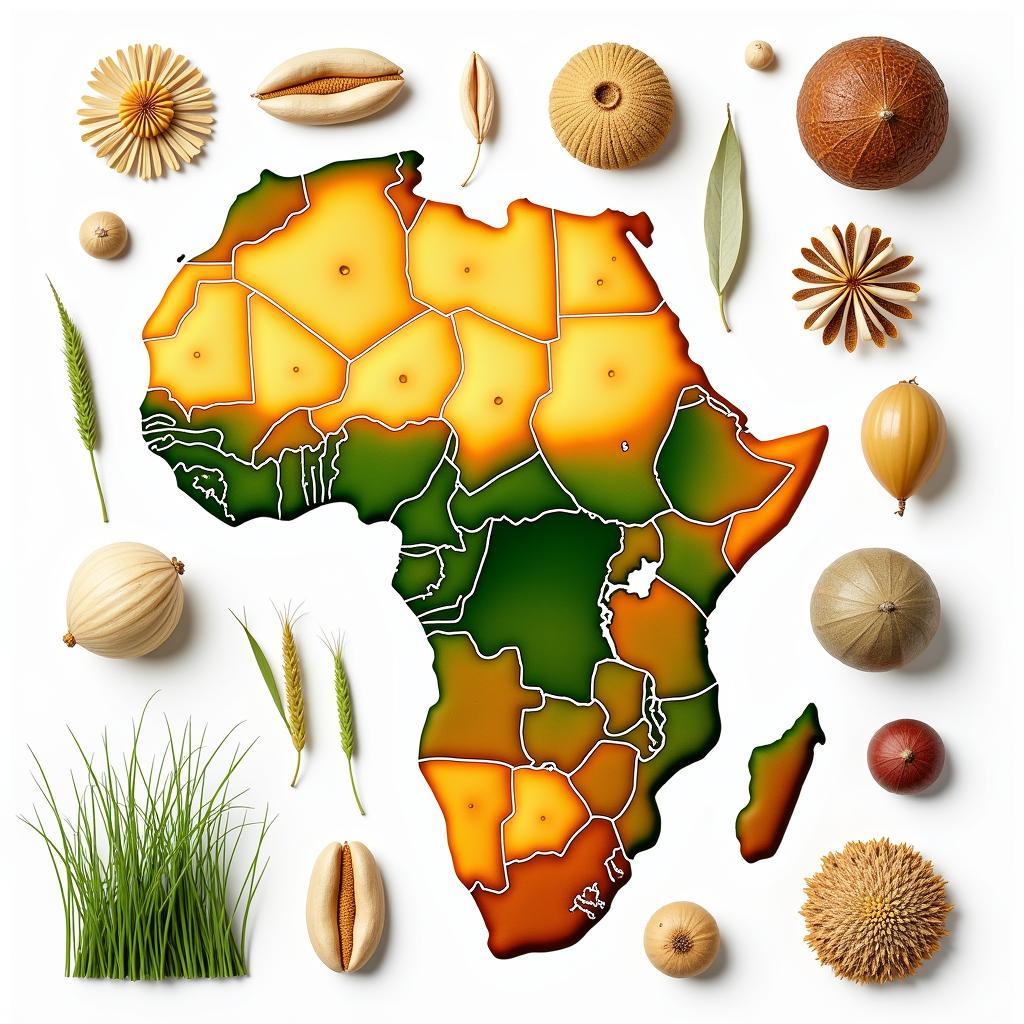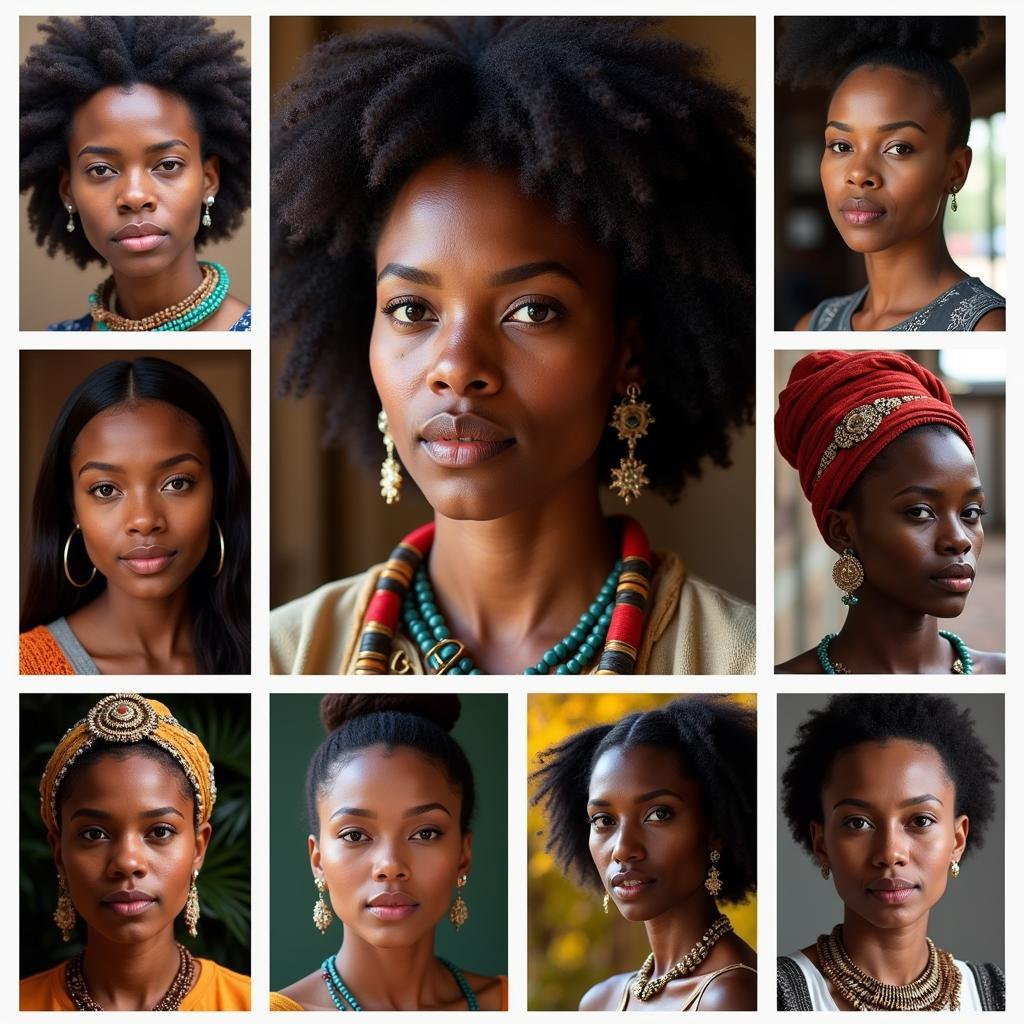Understanding the African Charter on Children’s Rights
The African Charter on Children’s Rights (ACR) stands as a crucial document safeguarding the rights and welfare of children across the African continent. Established in 1990, this charter reflects Africa’s commitment to nurturing its future generations and addressing the unique challenges faced by African children. This article delves into the importance, provisions, and impact of the ACR.
The Significance of the African Charter on Children’s Rights
The ACR is more than just a legal document; it represents a cultural shift towards prioritizing children’s well-being in Africa. It recognizes that children are vulnerable members of society requiring specific protections and provisions to ensure their proper development. The charter acknowledges the socio-economic realities of the continent and aims to address issues like child labor, trafficking, and lack of access to education and healthcare. The ACR draws inspiration from the African Convention on Human and Peoples Rights and international instruments like the UN Convention on the Rights of the Child, adapting them to the specific context of Africa.
Key Provisions of the ACR: Protecting the Vulnerable
The ACR outlines a comprehensive set of rights for children, encompassing civil, political, economic, social, and cultural aspects. These include the right to life, survival, and development; the right to a name and nationality; freedom of expression and association; protection from abuse, neglect, and exploitation; and access to education, healthcare, and a healthy environment. The charter also emphasizes the importance of family unity and the role of parents and communities in child upbringing.
 African Children Accessing Education and Healthcare
African Children Accessing Education and Healthcare
Focusing on the Rights of the African Child
The ACR addresses specific challenges faced by African children, such as child marriage, female genital mutilation, and the impact of armed conflicts. It calls for the prohibition of harmful traditional practices and emphasizes the protection of children affected by war. This focus on contextual issues makes the ACR a powerful tool for promoting positive change within African societies. Did you know that the ACR explicitly recognizes the rights of children with disabilities? This demonstrates the charter’s commitment to inclusivity and ensuring that all children are afforded equal opportunities.
“The ACR is a testament to Africa’s commitment to its children. It acknowledges the unique challenges they face and provides a framework for ensuring their well-being,” says Dr. Amina Diallo, a prominent child rights advocate based in Senegal.
Implementation and Challenges: Making Rights a Reality
While the ACR provides a strong legal framework, its implementation faces various challenges. These include limited resources, weak enforcement mechanisms, and deeply ingrained cultural practices that often conflict with the charter’s principles. However, various organizations and governments are working tirelessly to promote awareness of the ACR and advocate for its effective implementation.
How the Charter is Making a Difference
Despite the challenges, the ACR has played a significant role in raising awareness about children’s rights across the continent. It has prompted legislative reforms in several countries and contributed to the development of national child protection policies. The charter has also empowered civil society organizations to advocate for children’s rights and hold governments accountable.
“The ACR has given us a powerful tool to advocate for children. It has helped us challenge harmful practices and promote a culture of respect for children’s rights,” shares Mr. Kofi Asante, a community leader in Ghana working on child protection issues. The African Charter on Children at War further strengthens the protections for children in conflict zones.
Conclusion: A Future for Africa’s Children
The African Charter on Children’s Rights remains a vital instrument for protecting and promoting the well-being of children across Africa. While challenges persist, the ACR provides a roadmap for building a future where all African children can enjoy their fundamental rights and reach their full potential. Let’s continue to champion the ACR and work together to make its vision a reality. Learn more about historical efforts such as African Child Day 2019.
FAQ
- What is the purpose of the African Charter on Children’s Rights?
- Who is responsible for implementing the ACR?
- How does the ACR address child marriage?
- What are the main challenges in implementing the ACR?
- How can I contribute to promoting children’s rights in Africa?
- What role does the African Commission on Human and Peoples Rights Regional Organizations play in enforcing the ACR?
- Where can I find more information about the African Charter on Children’s Rights?
Scenarios
- A child is denied access to education because of their ethnicity. The ACR provides a legal basis to challenge this discrimination and ensure the child’s right to education.
- A young girl is forced into marriage. The ACR prohibits child marriage and empowers organizations to advocate for the girl’s rights.
- A child is orphaned due to conflict. The ACR emphasizes the protection and care of children affected by war, providing a framework for their support. Explore more about nutritious African food for children.
Related Questions and Articles
- What are the specific provisions of the ACR regarding child labor?
- How does the ACR compare to the UN Convention on the Rights of the Child?
- What are some success stories of ACR implementation in different African countries?
Need help? Contact us 24/7:
Phone: +255768904061
Email: kaka.mag@gmail.com
Address: Mbarali DC Mawindi, Kangaga, Tanzania.



